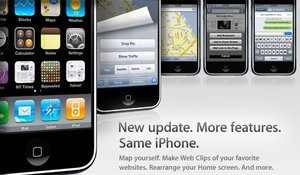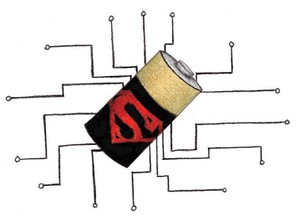 What does Steve-o really mean when he says, “It doesn’t matter how good or bad the product is, the fact is that people don’t read anymore”? And: “The whole conception is flawed at the top because people don’t ready anymore”?
What does Steve-o really mean when he says, “It doesn’t matter how good or bad the product is, the fact is that people don’t read anymore”? And: “The whole conception is flawed at the top because people don’t ready anymore”?
a) There’s no way in heck Apple is going to manufacture an electronic book reader like the mentioned-by-name Amazon Kindle or Sony Reader.
b) Based on past declarative statements made by Steve-o (remember, Apple’s not making a phone), the Cupertino company really is working on an ebook reader, only it’s not a reader but an ebook-sized tablet computer that can be used to read electronic content.
c) Who needs a dedicated ebook reader when you have the iPhone and iPod touch that third-party developers will be writing applications for when Apple’s software developer’s kit is released next month? Will a developer write an app to read books on the iPhone or touch?
Continue reading »
 In Steve Jobs’ mind, version 1 of the AppleTV failed to resonate with consumers because of its slavish reliance on the PC.
In Steve Jobs’ mind, version 1 of the AppleTV failed to resonate with consumers because of its slavish reliance on the PC. Today’s software updates for the
Today’s software updates for the  Simply put, improved battery life is the Holy Grail of consumer electronics. So far, advancement in battery technology for laptops, portable music players, digital cameras, and cell phones has been incremental and frustratingly slow.
Simply put, improved battery life is the Holy Grail of consumer electronics. So far, advancement in battery technology for laptops, portable music players, digital cameras, and cell phones has been incremental and frustratingly slow.

 Four years ago, the major record labels lined up with Pepsi-Cola to give away 100 million songs through Apple’s iTunes online music store. Fast forward to today.
Four years ago, the major record labels lined up with Pepsi-Cola to give away 100 million songs through Apple’s iTunes online music store. Fast forward to today. The fact that Google unveiled a new user interface today for its iPhone Web apps is noteworthy but hardly significant. What is interesting is the subtle shift going on behind the scenes.
The fact that Google unveiled a new user interface today for its iPhone Web apps is noteworthy but hardly significant. What is interesting is the subtle shift going on behind the scenes. In what the
In what the  This week’s digital lifestyle news was dominated by the Consumer Electronics Show (CES) held in Las Vegas.
This week’s digital lifestyle news was dominated by the Consumer Electronics Show (CES) held in Las Vegas.